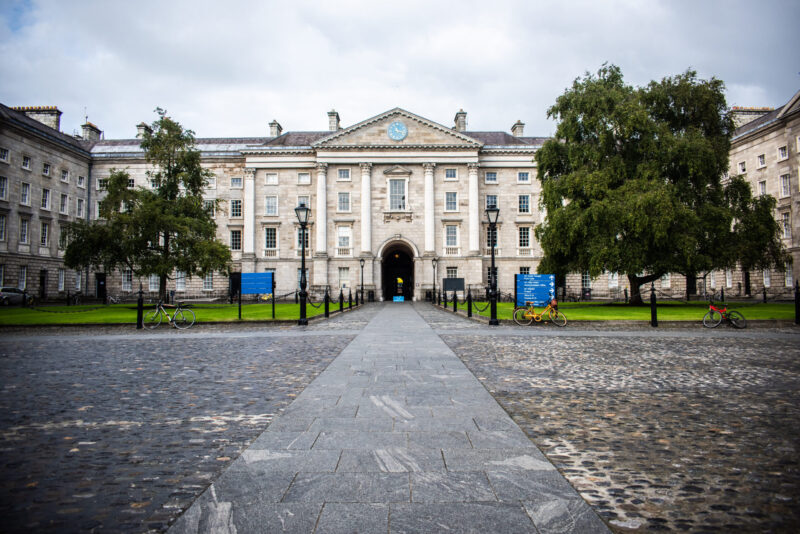Candidates in this year’s provost elections sang off the same hymn sheet in general terms at tonight’s opening event in the race – however, divergences appeared as the night progressed.
The campaign kick-off meeting – moderated by Registrar Brendan Tangney – opened with statements from each candidate, followed by a 30-minute question and answer session. The evening concluded with closing remarks from Prof Jane Ohlmeyer, Prof Linda Hogan and Prof Linda Doyle.
Opening speeches ranged widely but remained fairly uniform: all candidates touched on College values, funding, international partnerships, reducing administration and bureaucracy – and a lot of talk about the importance of experience.
College finances are the elephant in the room for any conversation on higher education and tonight’s discussions showed that this election will be no different. Doyle, for one, was keen to distribute funding more equitably, saying that the “current cake” of funding at present “goes to the centre and less to the edges”, something she would like to reverse, while Hogan pointed to creating international partnerships rather than “seeking individual students around the world” and philanthropic contributions as important for tackling financial issues in College.
Speaking about finances, Ohlmeyer came out with what was arguably the soundbite of the night, saying that “we are a university, not a tourist attraction”. Commercialisation was important, she said, but also stressed that it exists to supplement research and teaching, not “detract from academic values”.
The Department of Higher Education was lauded as a major opportunity for Trinity to fix its funding woes. Ohlmeyer was particularly celebratory of the new department, and said that the sector needed to now speak with “one voice” and promote the importance of higher education.
Hogan echoed these sentiments – although perhaps less enthusiastic, really emphasising the importance of having stakeholders and alumni as “ambassadors” to lobby for funding. “Skills of persuasion”, she said, will be important.
Doyle said that the new department means universities are “pushing an open door”, parroting Ohlmeyer’s emphasis on the importance of promoting what third-level does, citing Sláintecare – worked on by Trinity academics – as one example.
On the student–staff ratio, the candidates generally agreed that the issue was problematic – their treatment of that issue, however, varied. Ohlmeyer was clear that Trinity was “at capacity”, aiming to reduce the ratio down to 12:1 or 14:1. Doyle and Hogan were more flexible, the former saying that she would allow student numbers to grow to over 21,000 – saying that these plans were already set in motion – and the latter saying that she would aim for a 16:1 student–staff ratio.
Administrative woes and bureaucracy were flagged early on in each candidates’ opening statement – perhaps unsurprising considering this newspaper’s recent survey showing the importance of the issue amongst staff. All candidates took a sympathetic slant on support staff. Doyle criticised precarious employment, Ohlmeyer called for more certainty for support staff, adding that people are “completely demotivated at the moment”, while Hogan spoke of the importance of making sure that support staff feel valued and the reintroduction of promotions administrative and library staff.
While the three candidates outlined broadly similar visions for a Trinity under their provostship, certain issues could prove divisive as the campaign unfolds. Hopeful rhetoric was in no short supply, but voters will want to hear tangible ways to build the kind of College that the candidates envision.







